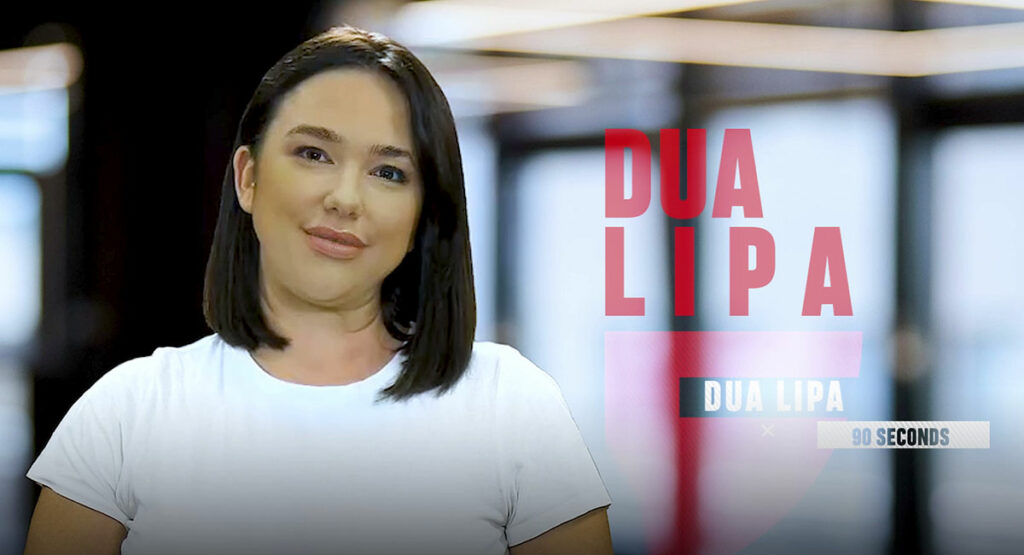Dua Lipa Deepfakes: What You Need To Know & Where To Look
Are you concerned about the rise of manipulated media and its impact on public perception? The increasing sophistication of deepfake technology is raising serious ethical and societal questions, making it crucial to understand how these fabrications are created and how to identify them.
The digital landscape has become a battleground of truth and deception, with deepfakes emerging as a potent weapon. These synthetic creations, fueled by artificial intelligence, can convincingly depict individuals saying or doing things they never did. From political figures to celebrities, no one is immune to this form of digital manipulation. While the technology has potential applications in entertainment and other fields, its misuse poses significant risks, particularly in the realm of misinformation and reputational damage.
| Personal Information | Details |
|---|---|
| Full Name | Dua Lipa |
| Date of Birth | August 22, 1995 |
| Place of Birth | London, England |
| Nationality | British |
| Occupation | Singer, Songwriter, Model |
| Years Active | 2015present |
| Known For | Powerful voice, hit albums "Future Nostalgia" and "Dua Lipa" |
| Notable Achievements | Numerous awards, global recognition in the music industry. |
Dua Lipa, the globally celebrated British singer, songwriter, and model, is among the high-profile figures who have been targeted by deepfake creators. Her distinctive pop sound and electrifying performances have garnered international acclaim, making her a prime subject for digital manipulation. Recent reports indicate that a deepfake video featuring Lipa has been circulating on social media, with her face superimposed onto the body of another person in a music video. This incident underscores the vulnerability of public figures to deepfake technology and highlights the need for increased vigilance.
- Richard Giannotti Biography Career More Unveiled
- Sergey Kosenko From Russias Top Influencer To Viral Sensation
The technology behind deepfakes is rooted in deep learning, a subset of artificial intelligence. By utilizing vast datasets of images and audio, AI algorithms can learn to mimic the appearance and voice of a targeted individual. This enables the creation of realistic, yet entirely fabricated, videos that can be difficult to distinguish from genuine footage. The manipulation can range from subtle alterations to the complete fabrication of events, making it a powerful tool for spreading misinformation and causing reputational harm.
The term "deepfake" itself is a portmanteau of "deep learning" and "fake." It alludes to the complex AI algorithms involved in their creation. While the term gained prominence in recent years, the underlying technology has been evolving for some time, with its capabilities constantly improving. The impact of deepfakes extends far beyond entertainment, encompassing political discourse, journalism, and even personal relationships. The potential for misuse is vast, making it essential to address the challenges posed by this rapidly evolving technology.
The proliferation of deepfake pornography is another troubling aspect of this technology. Several celebrities, including Emma Watson, Scarlett Johansson, Natalie Portman, and others, have been targeted in such videos. The easy availability of deepfake creation tools has exacerbated this problem, allowing individuals to create and share these videos with relative ease. The ethical implications of such content are significant, including privacy violations, non-consensual image creation, and the potential for severe psychological harm to the individuals involved.
- Elin Nordegren Jordan Cameron Relationship Kids More
- Jameliz Benitez Smith On Onlyfans Exclusive Content More
The distribution channels for deepfakes are diverse. Social media platforms, messaging apps, and online forums have become primary venues for sharing these videos. This makes it difficult to track and control their spread. Furthermore, the anonymity offered by the internet allows creators to operate with relative impunity, making it challenging to hold them accountable for their actions. The rapid dissemination of deepfakes amplifies their impact, potentially reaching a global audience in a matter of hours.
Reddit, a popular online platform, took steps to ban deepfake pornography in February 2018, but the problem was already widespread across the internet. The cat was already out of the bag, with numerous websites and forums dedicated to the creation and sharing of deepfakes. The ongoing battle to remove these videos from the internet underscores the complexities of content moderation and the challenges of combating harmful digital content.
The creation of deepfake porn involves swapping the faces of celebrities onto the bodies of pornographic actors. This process relies on sophisticated AI algorithms that can seamlessly blend the faces, creating realistic yet entirely fabricated videos. The ethical implications are immense, including the exploitation of individuals and the potential for severe psychological distress. The very nature of such videos raises questions about consent, privacy, and the misuse of technology.
Identifying deepfakes is becoming increasingly challenging as the technology advances. However, there are several telltale signs that can help detect manipulated content. These include inconsistencies in facial expressions, unnatural movements, and audio that doesn't sync perfectly with lip movements. Close examination of details, such as the lighting and background, can also reveal signs of manipulation. Utilizing forensic tools and comparing the video to authentic sources can also help. In this digital era, critical thinking and a healthy dose of skepticism are essential tools in navigating the sea of misinformation.
The rise of deepfakes necessitates a multifaceted approach to address the issue. This includes technological solutions, such as AI-powered detection tools that can identify manipulated content. Furthermore, media literacy education is crucial, empowering individuals to critically evaluate the information they encounter online. Legal frameworks and regulations are also needed to hold creators of deepfakes accountable and protect individuals from harm. A combination of technological, educational, and legal efforts is vital in mitigating the negative impacts of deepfakes and promoting a more trustworthy digital environment.
In the context of Dua Lipa, any deepfake video that appears to show her in a compromising situation should be approached with extreme caution. Given the potential for reputational damage and the psychological impact of such content, it is imperative to verify the authenticity of any video before believing it. Checking the source, cross-referencing with credible media outlets, and looking for the telltale signs of manipulation are essential steps in avoiding the spread of misinformation. Always be mindful of the potential for harm, and report any suspected deepfakes to the relevant authorities or platform administrators.
The case of Dua Lipa serves as a stark reminder of the vulnerability of public figures to deepfake technology. It underscores the importance of vigilance, critical thinking, and a proactive approach to combating the spread of misinformation. As technology continues to evolve, so too must our ability to detect and address the challenges posed by deepfakes. By staying informed, exercising caution, and working together, we can strive to protect individuals, promote truth, and foster a more trustworthy digital world.
If you encounter any content that you suspect is a deepfake of Dua Lipa or any other individual, consider the following steps: First, critically examine the video for inconsistencies or signs of manipulation. Second, compare the video to authentic sources, such as verified news reports or official social media accounts. Third, check the source of the content and determine its credibility. Fourth, report the video to the platform on which it is hosted. Fifth, share the information with others, but be cautious about amplifying the content, particularly if it is potentially harmful.
The digital world is in continuous progress, with artificial intelligence and deep learning at its forefront. As we explore the realms of this technology and its potential, we must be mindful of the implications it holds for individuals and communities worldwide. The threat of deepfakes is a substantial issue in a digital landscape that is rapidly evolving. To safeguard ourselves from being manipulated by these realistic but entirely fabricated videos, we must remain informed, practice critical thinking, and adopt a cautious approach.



Detail Author:
- Name : Pink Gleichner
- Username : laura10
- Email : kling.marie@halvorson.com
- Birthdate : 2007-01-05
- Address : 2370 Veum Keys Port Oceaneton, NJ 40809
- Phone : +19124692542
- Company : Rath LLC
- Job : Claims Adjuster
- Bio : Assumenda deserunt praesentium quod tenetur fuga. Voluptatem officia nihil minima. Sint placeat et molestias in iure. Aut illum et et et et.
Socials
tiktok:
- url : https://tiktok.com/@billywillms
- username : billywillms
- bio : Facilis delectus at veritatis enim.
- followers : 2241
- following : 1259
twitter:
- url : https://twitter.com/billy_willms
- username : billy_willms
- bio : Cum in delectus iusto temporibus. Sint nobis consequatur sunt rerum. Nihil velit voluptatem dolorem est. Sed et ex dolor laboriosam illum molestiae.
- followers : 927
- following : 1035
linkedin:
- url : https://linkedin.com/in/billywillms
- username : billywillms
- bio : Tempore quae sit odio non iure reprehenderit aut.
- followers : 4643
- following : 2547
instagram:
- url : https://instagram.com/bwillms
- username : bwillms
- bio : Eaque eos possimus rem excepturi aut. Autem et et et omnis dolores.
- followers : 2699
- following : 2655